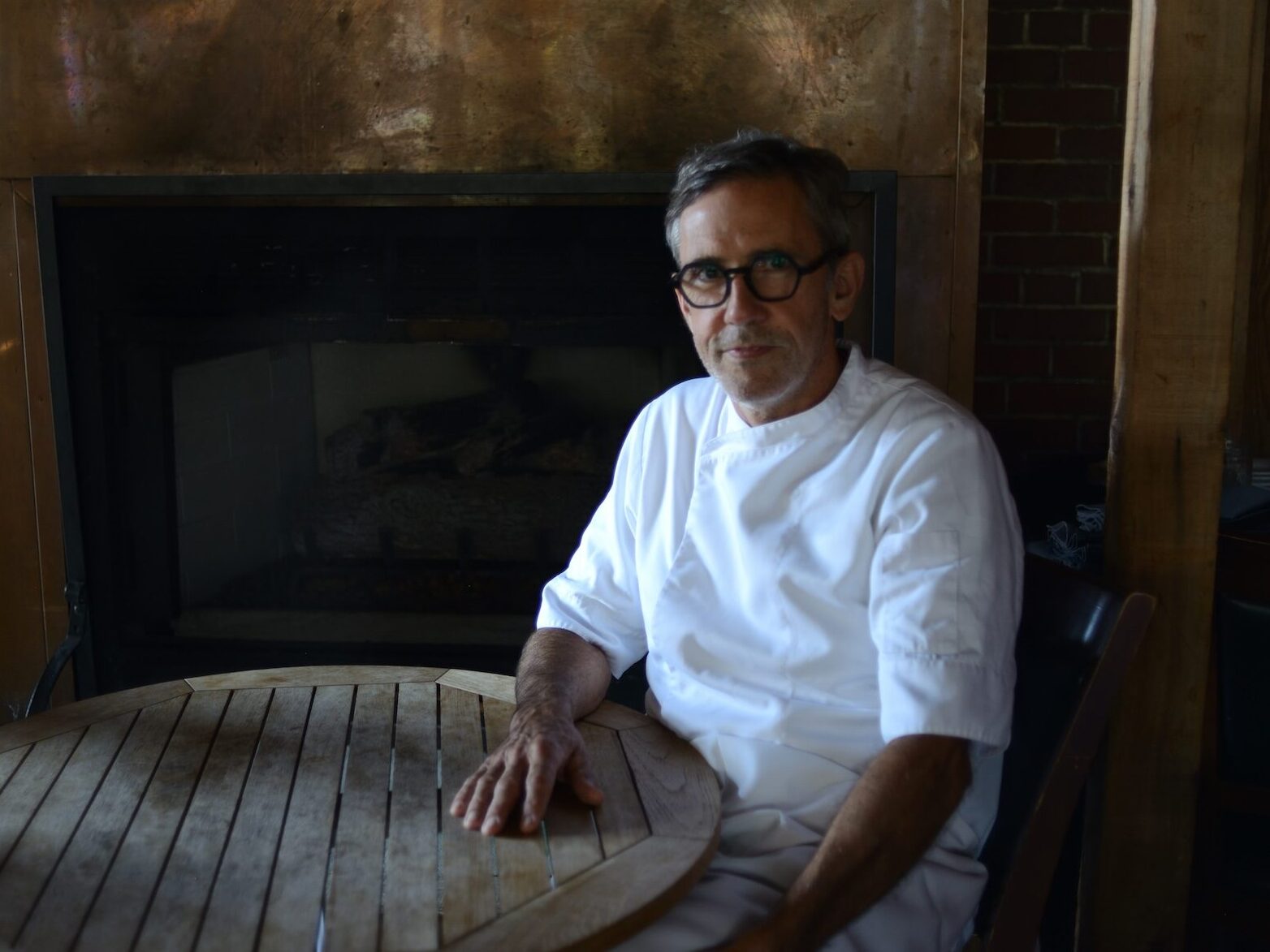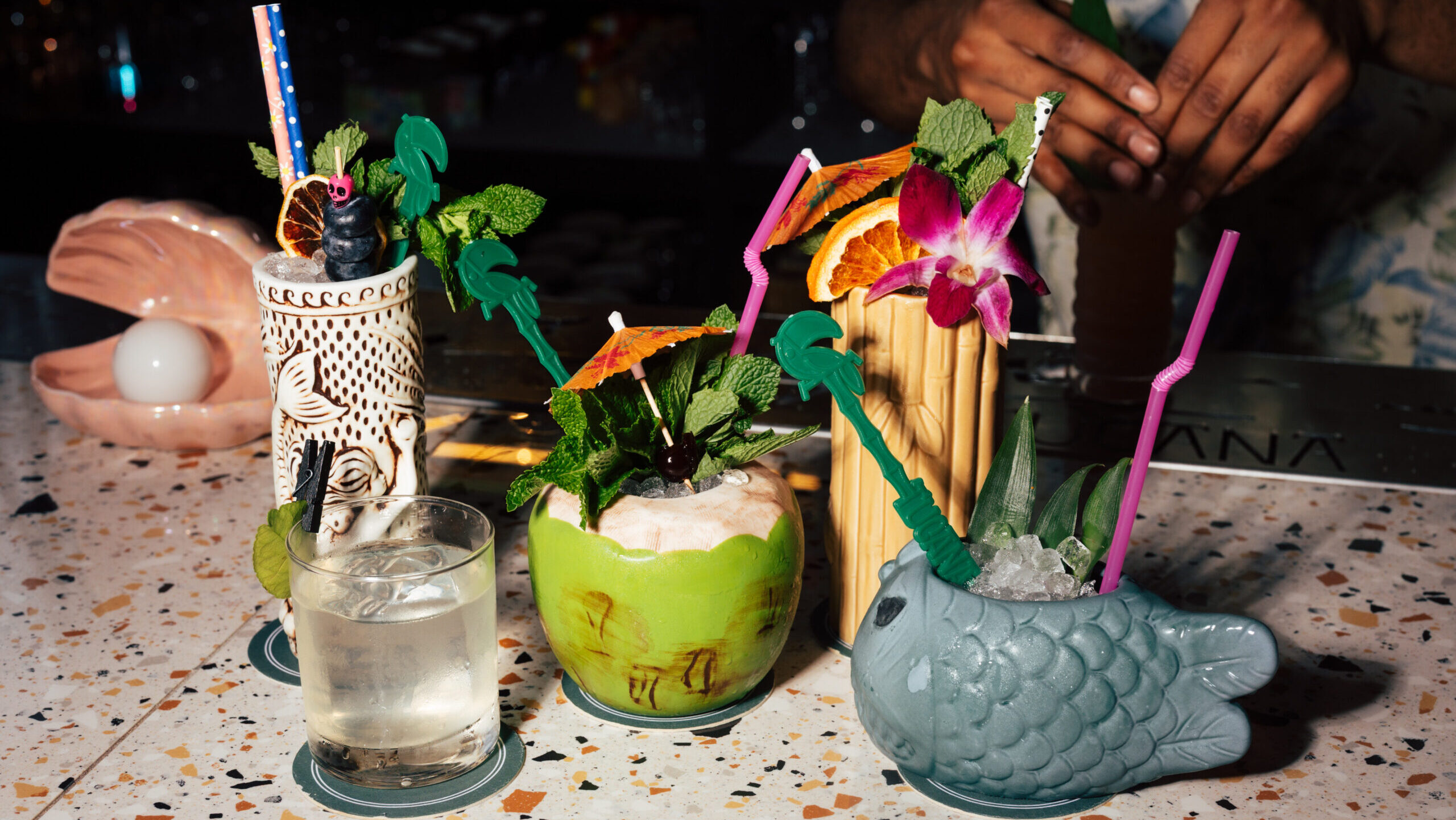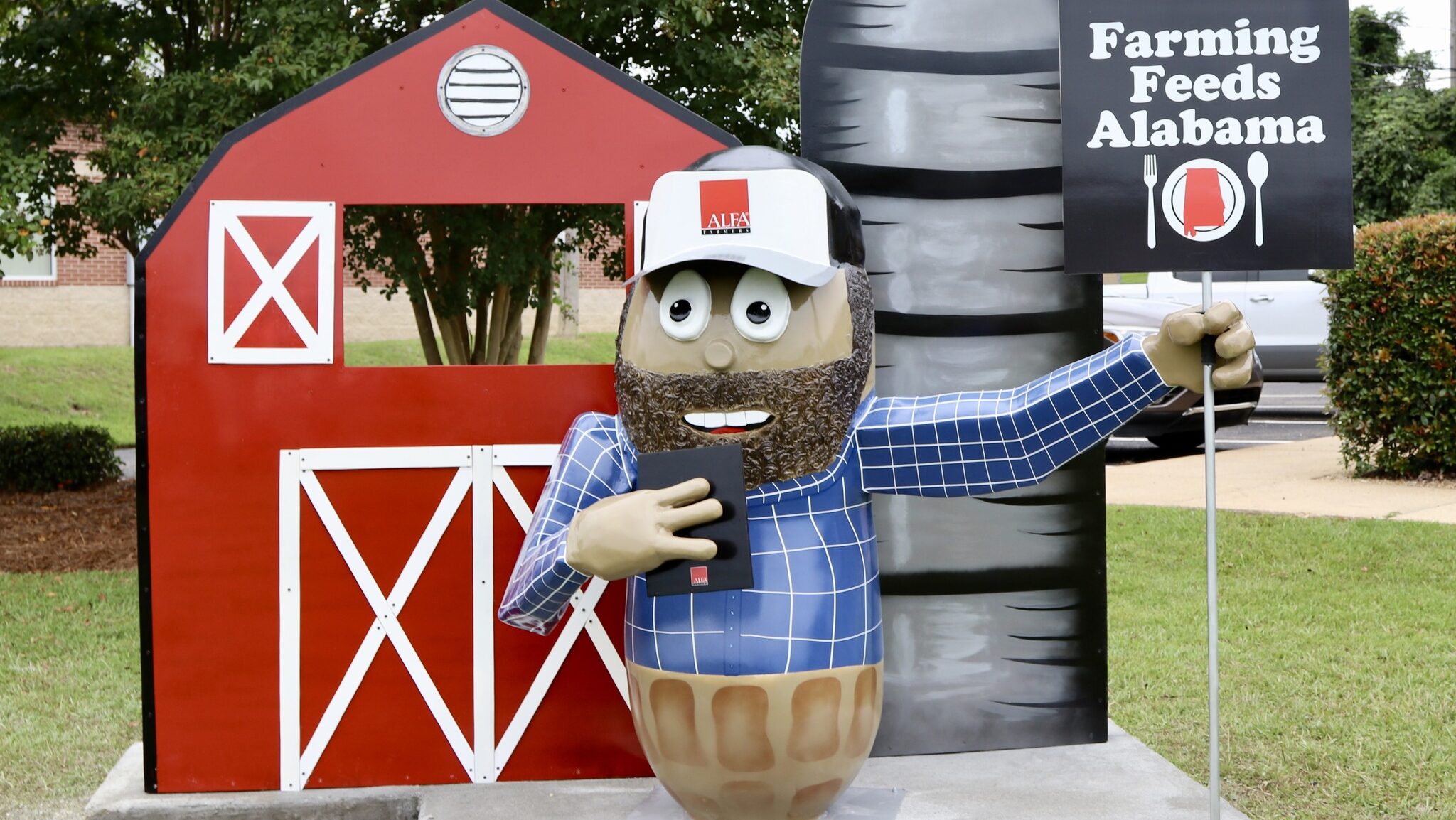It’s midday, and the kitchen at Dyron’s Lowcountry is buzzing with movement. The front doors won’t open for guests for another four hours, but the preparations are set in motion amongst the staff: lively, yet calm, and in perfect synchronization. Cuts of wagyu are carefully sliced as a tray of cornbread is whisked into the oven. Another is carefully stripping herbs next to a jeweled array of heirloom tomatoes. On the other side of the galley, the chef dips a spoon into a pot of chicken stock, which is on a three-day journey to becoming a rich, deep broth for gumbo, taking on luxurious amounts of duck fat and butter.
At the helm of the ship is Chef Chris Melville, although he may prefer a different metaphor for his own leadership role. “For the longest time, kitchens have been run like pirate ships. The business gets a reputation for that,” he says. But this particular ship–Dyron’s, the kitchen he’s been in longer than any other restaurant job before–doesn’t feel like a pirate ship at all. It feels at peace, organized, and has an air of a somewhat gentler approach.
“One of the biggest compliments I’ve received at Dyron’s is when people say that the air breathes differently. The staff is at rest, they have the support to do their jobs and to take care of each other,” Melville shares. This shift in strategy, the philosophy of community in his kitchen, has been born from decades of trial by fire, of Melville’s own life experiences both in and out of the industry.
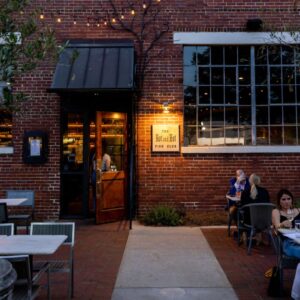
(Hot and Hot Fish Club/Facebook)
Melville is certainly no stranger to Birmingham’s fine dining world; in many ways, he’s been a part of shaping it into what it is today. In the early 90s, he moved to the Bay Area in preparation to open Hot and Hot Fish Club with Chef Chris Hastings. “Chris and I were confidantes, and I left for the Bay Area knowing I’d be back to help him open Hot and Hot,” he says. Soon after opening, the two parted ways, but Melville remained very much in the city’s culinary world.
From the Birmingham Museum of Art to The Club atop Red Mountain, Melville began to take up managerial and administrative roles alongside his chef skills. “At the Museum of Art, I was in over my head at my first event, the Museum Ball—700 people. Trial by fire,” he remarks. At The Club, he shouldered the responsibilities of both general manager and chef, where he hired and trained the front of house staff, overseeing every detail from the uniforms to the flatware.
“I know more about French porcelain than I ever thought I would,” he jokes. And he describes the sound of Limoges breaking–the most delicate, handcrafted work of art, the misfortune when it hits the ground. “It sounds like crystal,” he says. “Both beautiful and heartbreaking.”
And when life shatters us, the remnants–much like that sound–can offer fragments of beauty.
“Things take time to repair,” says Melville, who stepped into a journey of sobriety 15 years ago. “But I have complete faith in the direction I’m headed in.”
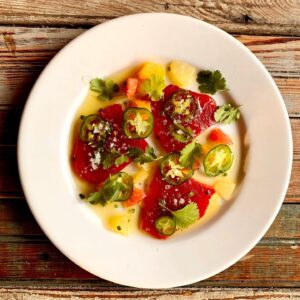
(Dyron’s Lowcountry/Facebook)
Chef Melville began searching for a detour by means of returning to his craft and to regain a sense of direction. Part of that expedition was a summer of commercial salmon fishing in Alaska. “It was such an eye-opening experience–the final frontier,” he says. “It’s just raw nature, unspoiled, pristine. It has a spiritual effect when you’re exposed to it.” He came back to his true passion–serving wholesome, ingredient-driven meals to his community–and this time as a line cook.
“Going back to being a line cook brought me back to the craft. I fell in love with cooking again,” he remarks. “I’m constantly in dialogue with the ingredients. God’s the architect of them–I’m just the caretaker.”
Back in Birmingham, Melville regained a clear direction of the kind of chef he wanted to be: centered on community, service, and health. He knew he couldn’t build this objective on his own, as he continuously credits those who have stepped into his path as pivotal to the chef he has become. One such person is Christie Lowe, former owner of Evelyn’s Southern Fare, where Melville found direction as Executive Chef and a gentler, kinder approach to leadership.
“She was so unselfish, caring, a loving demeanor that was real–a genuine magnetism,” he recalls of Lowe, who tragically passed in 2023.
Honoring her memory is something he keeps close, especially reflecting on their time as the little restaurant that could during COVID. They didn’t truly need an executive chef, but it felt destined that they would work together. “If we were going to embrace hospitality, then we were going to start with each other—with our team. We had to love each other and practice that and then extend it to our guests as well,” he says.
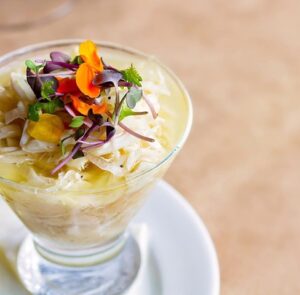
(Dyron’s Lowcountry/Facebook)
And so Melville finds himself at the helm of Dyron’s—not as a captain, but as a caretaker. He cares deeply about every ingredient that’s served on its plates, from sourcing glyphosate-free flour to using beef tallow in the kitchen’s fryers, choices that improve both flavor and health. The menu is seasonally driven, reflecting local harvests and sustainable seafood. With summer coming to a close, he makes the most of the season’s produce by serving Alaskan Halibut with corn pudding, Trent Boyd’s heirloom tomato coulis, and jumbo crab aïoli.
Perhaps the most unique menu offering is the West Indies Salad, a vibrant combination of Gulf blue crab, sweet Vidalia onions, and a bright sharpness from apple cider vinegar. Served alongside other cajun and lowcountry favorites like their signature gumbo or tallow-fried okra, Melville thoughtfully sources these ingredients from local producers such as Ireland Farms, Evans Meats, and Greg Abrams Seafood. With the menu’s unique mix of classic and experimental, Melville attributes his creative freedom in the kitchen to owners Dyron and Sonya Powell.
Chef Melville may not know where the path ahead leads, but to him, that’s just fine. “I don’t know where this may go—but if I can advocate for others to make better food decisions for their health, by means of education, then I’m doing okay,” he says.
The accolades are perhaps the last thing on Melville’s mind, at least, in the current season of his journey. He prides himself and his kitchen on excellence–but not for awards or fanfare, but rather to honor his community through the quiet power of hospitality.
“I just want to be of maximum service to others–whatever that looks like,” he says.
And so, you’ll find him in the kitchen, quietly working away with his team, in dialogue with his ingredients, steering the ship with kindness, humility, and care.
